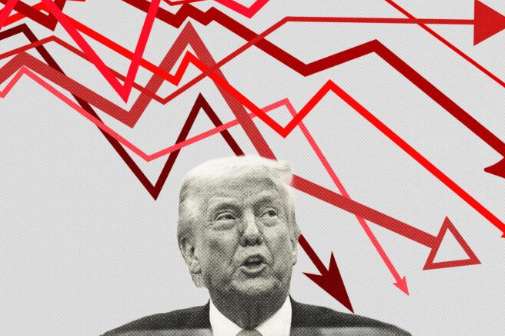The July 9 Deadline Is Looming, But It Looks Like Trump Wants No More Negotiations
The July 9 "deadline" is approaching, but how would the negotiations end?On Sunday, during an interview with the media, Trump stated that there was no need to extend the impending tariff deadline. He

The July 9 "deadline" is approaching, but how would the negotiations end?
On Sunday, during an interview with the media, Trump stated that there was no need to extend the impending tariff deadline. He announced that in the coming days, the U.S. would send letters to hundreds of countries, including Japan, unilaterally informing them of the tariff rates on their exports to the U.S., rather than continuing trade negotiations.
Using a letter addressed to "Dear Mr. Japan" as an example, Trump explained how the U.S. would notify its trade partners of the new tariff arrangements, mentioning that the U.S. would impose a 25% tariff on Japanese automobiles.
He emphasized that the letters would be sent soon, adding, "We don't need a meeting. We understand the situation. We have all the data."
Previously, Trump had made similar promises on May 16 and June 11, claiming that unilateral tariff letters would be sent within 2-3 weeks, but neither was fulfilled.
Meanwhile, U.S.-Japan trade talks this week have stalled. Japan's chief tariff negotiator, Yoshio Akazawa, failed to make breakthroughs during the seventh round of ministerial-level negotiations in Washington this week and was even unable to meet with U.S. Treasury Secretary Bessent.
U.S. Shifts to Unilateral Tariff Strategy
Trump's remarks suggest that the U.S. government is preparing to abandon negotiations as a means to resolve trade disputes.
During the interview, Trump said: "We made deals, but I'd rather just send them a letter, a very fair letter, saying 'congratulations, we're going to allow you to trade in the United States of America, you're going to pay a 25% tariff, or 20%, or 40 or 50%.' I would rather do that."
This stance contrasts with previous statements by U.S. officials.
U.S. Commerce Secretary Lutnick and National Economic Council Director Hassett had previously promised that numerous agreements would be reached this week. Treasury Secretary Bessent also stated last Friday that trade deals could be finalized by September 1.
Japanese Auto Tariffs in the Spotlight
The core disagreement in U.S.-Japan trade negotiations revolves around auto tariffs.
According to media reports, Trump reiterated his long-standing stance on trade imbalances with Japan during the interview, stating, "They don't buy our cars, but we buy millions of their cars. It's not fair."
In April this year, the Trump administration raised tariffs on Japanese auto imports from 2.5% to 27.5%, sparking strong opposition from Japan.
Japan has been actively seeking a breakthrough. Its chief tariff negotiator, Yoshio Akazawa, recently traveled to Washington for the seventh round of ministerial-level negotiations and met with U.S. Commerce Secretary Lutnick for about an hour, in addition to two phone conversations. However, his planned meeting with Treasury Secretary Bessent did not materialize, and significant differences over the treatment of the auto industry remain unresolved.
Furthermore, a meeting earlier in Canada between Japanese Prime Minister Ishiba and Trump also failed to yield an agreement, leaving the negotiations deadlocked. Trump further suggested that Japan could reduce its trade surplus by purchasing U.S. goods such as oil but did not offer specific concessions.
Disclaimer: The views in this article are from the original Creator and do not represent the views or position of Hawk Insight. The content of the article is for reference, communication and learning only, and does not constitute investment advice. If it involves copyright issues, please contact us for deletion.